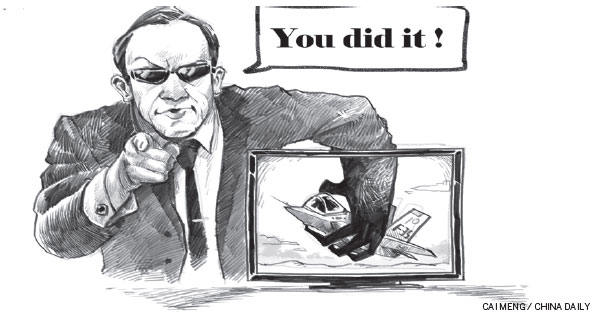Time to end the cyber-spying blame game
By Shen Yi (Chinadaily.com.cn) Updated: 2015-01-21 16:16

Most governments have intelligence departments whose fundamental function is to collect data from other states and protect their countries from being spied on.
According to US national security strategy in the late 1990s, major threats to the country's security intelligence included even Israel, perhaps the closest US ally.
Moreover, countries like the US should indulge in some introspection before accusing others of stealing sensitive data, because their allegations over the past quarter century, to some extent, show they are rather reluctant to see China's independent yet powerful rise.
They need to implement structural reforms, instead of blaming other countries' economic growth, to revive their economies.
China, on its part, has to act more confidently when confronted with accusations of launching cyberattacks; it has to defend its national interests with more verve.
In an article titled "Why we spy on our allies" in The Wall Street Journal in 2000, R. James Woolsey, another former CIA director, addressed the European companies which the US had spied on saying, "we have spied on you because you bribe".
No country should adopt such double standards.
As for Beijing, it needs to more vigorously defend its unimpeachable rights and put an end to the futile "finger-pointing" game that it is not at all interested in playing.
The author is an associate professor in the Department of International Politics at Fudan University in Shanghai.

I’ve lived in China for quite a considerable time including my graduate school years, travelled and worked in a few cities and still choose my destination taking into consideration the density of smog or PM2.5 particulate matter in the region.











